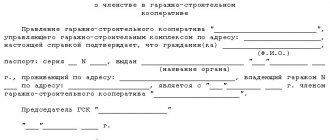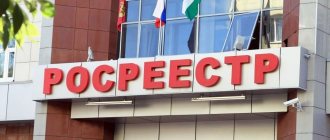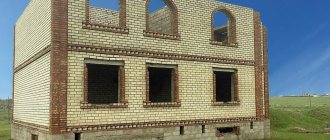Registration of ownership rights to a land plot is carried out on the basis of a submitted application from a citizen and a package of documents. In order for the application to be accepted for consideration, a state fee must be paid. The basis for registration is a purchase and sale agreement, deed of gift, state and municipal acts. Registration of property rights to a plot has some nuances. The procedure can only be carried out after the object has been delivered for cadastral registration. Land that is not private property is not subject to mandatory registration.
What is registration of property rights
To become the rightful owner of a plot of land, it is not enough to install a blind fence and build a house on it. It is necessary to obtain an official document - a certificate of ownership, and then this subject will be the legal owner of this property. Without it, it is impossible to carry out any legal transaction, you cannot even sell, exchange or perform other manipulations, and its possession will be considered illegal.
State registration of property rights is the process of officially assigning 3 main powers to a given copyright holder - to own, use and dispose. If you have this document, no third party will be able to encroach on the land plot.
Legal acts:
- Decree of the President of the Russian Federation No. 1847 of December 25, 2008
- Federal Law “On State Registration of Real Estate” dated July 13, 2015 No. 218-FZ.
- Land Code of the Russian Federation: the provisions of Article 25 indicate the mandatory registration of rights to the site. In general, it spells out various options for ownership of land by different persons.
- Civil Code of the Russian Federation: Articles No. 219 and No. 223 - the right to full ownership of a real estate object arises after receiving a certificate of ownership.
The Constitution of the Russian Federation, in particular, Article No. 36 guarantees the right of subjects of Russia and associations to acquire land for private ownership.
Registration of ownership of a residential building according to a simplified scheme
- plots of land that were provided to citizens before 10/31/2001 on the basis of ownership, lifelong inheritable ownership or perpetual legal use for the purpose of running personal subsidiary/dacha farming, vegetable gardening or horticulture, and, in addition, for garage or individual housing construction;
- Real estate objects that are under construction or have been constructed, and during the construction (reconstruction) of which, according to the regulatory legal acts in force in the territory of the Russian Federation, the issuance of construction permits is not required, namely:
- Garages of individual significance, which are built on plots of land provided for purposes not related to business;
- Houses for garden and dacha purposes, as well as buildings of other kinds, erected on plots that were provided in favor of persons for gardening, as well as dacha farming;
- Auxiliary buildings and structures (in the form of barns, sheds and the like);
- Residential buildings of individual significance, which were created on plots of land for individual housing construction or within plots that are located in a populated area and are intended for running personal households of a subsidiary nature (in other words, personal plots of land).
How does the procedure work?
The registration process takes place at the multifunctional center (MFC) or at the Rosreestr branch at the location of the land plot. And it consists of the following stages:
- Acceptance of applications and documents.
- Verification of certificates and land rights.
- Identification of reasons for refusal or termination of registration actions.
- If there are no grounds for making a negative decision, enter data into the electronic database of the Unified State Register of Real Estate.
- Issuance of a certificate of registration of rights.
You can contact the authorized body in person, or, to save your own time, send documents with an inventory by registered mail with acknowledgment of delivery. There is also another option - to use a trusted person. To do this, you need to draw up a power of attorney in his name and have it certified at a notary office.
Step-by-step actions of the applicant:
- Prepare a package of documents.
- Write an application and submit it to the registration authority along with all documents.
- Pay the state fee (be sure to keep the receipt).
- Receive a receipt for acceptance of certificates from the registrar.
- On the specified day, receive an extract from the Unified State Register.
The processing time for an application is different for each organization. If you contact the Russian Register, it will take about one week; if you contact the multifunctional center, it will take 9 working days.
The legislation provides for a simplified procedure for registering rights to a plot and a house, if it is intended for private plots, construction, a summer residence, or a vegetable garden. This procedure also applies if no identification certificate indicates the basis for granting the land for use to a given entity. In this situation, the basis for registration of rights is the municipal act of transfer of the land plot.
What documents will you need?
The list of requested documents may differ depending on how the land plot was acquired. Therefore, it is recommended to clarify this information with the registrar. You will need originals and high-quality photocopies.
So what you need:
- Passport of a subject of the Russian Federation.
- A power of attorney certified by a notary, if the interests of this subject are represented by another person.
- The act of registration of the transaction (3 copies must be attached).
- The act of re-registration of a land plot for one’s own use through purchase or privatization.
- If the plot was purchased at auction, you will need an act and an extract from the protocol.
- Extract from the Unified State Register or certificate of ownership.
- Cadastral certificates.
- A check for depositing the amount towards payment of the state duty. You can pay it through the terminal or at the multifunctional center. There are also remote options for making payments - the government services website.
An employee of Rosreestr, if necessary, may request the submission of an additional package of documents.
When sending documents by mail, copies of the passport and other documents must be notarized. After their acceptance, the applicant will be issued a receipt for the acceptance of documents and a complete list of them. The date on which the subject must appear again is also indicated.
To formalize the transfer of the right to a plot, an individual will have to pay 2,000 rubles, and a legal entity – 22,000 rubles. There are no additional fees.
Features of the dacha amnesty
A simplified procedure for registering ownership of land plots allows you to register property rights. However, the law strictly limits the categories of land for which this can be done.
.
Two conditions must be met
. Firstly, the allotment was received by the owner before October 30, 2001.
Secondly, it is provided for the purposes of:
- implementation of individual subsidiary farming, gardening, vegetable gardening;
- individual garage construction;
- construction of a residential building.
According to Law No. 93, the privatization of these land plots is free of charge. This legislative act has been extended until March 1, 2020
. The deadline for land privatization itself is set until the end of 2020.
Sample act on granting ownership of a land plot
Compiling and submitting an application
The application form is unified. Submitted by the owner of the plot, or his authorized representative under a notarized power of attorney. The application contains information about the owner and the object, and is signed by him. It also needs to indicate the method of obtaining the registration document. This may be a personal application to the MFC, a branch of Rosreestr, or receiving documents by mail. Errors and corrections are not allowed in the application, so you should pay attention to this.
Loading…
Taking too long?
Reload document
| Open in new tab
It is important to know that the MFC is not a registration authority, it is just an intermediary between the State Register and the applying citizen.
Registration deadlines
Since January 1, 2017, the time frame for completing state registration has been significantly reduced. And now it is 7 working days from the date of submission of documents to the authorized body. When applying to the MFC, the period will increase to two days, because from here the documents are forwarded to Rosreestr, then back to the multifunctional center, where the citizen receives a certificate.
Payment of the state fee depends on the permitted type of use. For plots intended for setting up a garden, vegetable garden, personal farming, individual construction and agricultural land, the cost is 350 rubles. Allotments that do not belong to any of these categories - for individuals = 2000 rubles, and for legal entities the amount increases 10 times.
Obtaining a certificate
A certificate of registration of rights is a document confirming that a given person can dispose of the land plot as he wants. Can rent it out, inherit it, sell it, exchange it and make other transactions.
It is important to note that starting from 2020, a certificate of ownership is no longer issued. This is confirmed by an extract received from the Unified State Register of Real Estate, which also indicates the owner and all data about the land plot. It has the same legal force, and if necessary, it can also be ordered through the government services website. To use this option, you should first register a personal account and go through identification in order to have full access to the platform. If the extract will be received by a trusted person, this should also be indicated.
Certificates of ownership that were issued previously have not lost their legal force, and they are also valid.
What is re-registration of a land plot?
This is a procedure for registering property rights of those entities that acquired land before the end of 1998. The administration provided plots for private household plots, gardens, and for the construction of various facilities. On the right of permanent (perpetual) use, inheritable lifelong ownership. Since these lands were registered with the subjects according to outdated legal regulations, they need to contact the Rosreestr office again and obtain a new certificate. Otherwise, it will not be possible to perform any actions with the allotment.
What documents will be needed for this:
- Title document.
- Cadastral passport.
- Identification document of the applicant.
- Receipt for payment of state duty.
Since 2010, it has become possible to submit two applications at once. One for registering the plot with the cadastral chamber, and the second for re-registration of rights. If you don’t have a cadastral passport, you shouldn’t waste time restoring it; it’s better to contact the authorized body and register your property rights.
The process takes place in several stages, and each of them has its own specific nuances, but at the same time they are very similar to the procedure for obtaining a certificate for the first time. You will also need to contact Rosreestr, fill out an application there and submit a complete package of documents to the specialist. On the appointed day, as indicated on the receipt, receive the completed certificate.
The procedure for state registration of rights in a simplified manner to real estate objects
26.02.2009The procedure for state registration of rights in a simplified manner to real estate objects
On September 1, 2006, the Federal Law of June 30, 2006 No. 93 - Federal Law “On amendments to certain legislative acts of the Russian Federation on the issue of registration in a simplified manner of citizens’ rights to certain real estate objects” came into force, dedicated to reducing and reducing the cost of the procedure for registration of rights by citizens ownership of certain land plots and real estate objects. This Law affects the interests of citizens who have land plots for personal and dacha farming, gardening, vegetable gardening, individual housing and garage construction. There are 3 types of objects, the rights to which can be registered in a simplified manner:
- land;
- objects for which a construction permit is required;
- objects for which a building permit is not required.
It should be noted that the mechanism for registering rights to a land plot in a simplified manner, introduced by the Law, is applicable only for cases that meet the following requirements: firstly, land plots must be provided before the Land Code of the Russian Federation comes into force, i.e. until 10/30/2001; secondly, they must be provided for strictly defined purposes: for running personal subsidiary plots, dacha farming, vegetable gardening, horticulture, individual garage or individual housing construction. That is, if the plot is provided for other purposes, for example, for the operation of a residential building, then the ownership of the land plot cannot be registered in a simplified manner, since this purpose is not provided for by the Law. Thus, in accordance with the above law, if a land plot is provided to a citizen before the entry into force of the Land Code of the Russian Federation for personal subsidiary farming, dacha farming, vegetable gardening, gardening, individual garage or individual housing construction, on the right of lifelong inheritable possession or permanent (perpetual) use , then the citizen has the right to register ownership of this land plot. No decision is required to make such land plots available to citizens, and from the moment of registration of property rights the corresponding right of lifelong inheritable possession or permanent (perpetual) use is terminated. In accordance with Article 25.3 of the Federal Law on State Registration, for state registration of ownership of real estate objects being created or created, a citizen must attach to the application a document confirming the fact of the creation of such an object, a document confirming the rights to the land plot on which such an object is located, and a cadastral plan of this land plot. An insurmountable obstacle to the registration of ownership of buildings, structures and structures created on a land plot without obtaining the necessary permits was the norm of Art. 222 of the Civil Code of the Russian Federation. Such a building was considered an unauthorized construction and ownership of it could only be recognized by a court, provided that its preservation would not violate the rights and legally protected interests of other persons or create a threat to the life and health of citizens. As a result, millions of citizens who decades ago built buildings, structures and structures on land plots intended for gardening, personal farming, individual garage and individual housing construction, were actually unable to register the rights to these real estate objects. Amendments made to paragraph 3 of Art. 222 of the Civil Code of the Russian Federation, the provisions on unauthorized construction were declared invalid and allowed to recognize the right of ownership of such a construction not only by the court, but also in an administrative manner. In addition, amendments were made to the Federal Law “On the Enforcement of the Town Planning Code of the Russian Federation” (Article 8), according to which, until January 1, 2010, it is not necessary to obtain permission to put an individual housing construction project into operation. The legislator decided that it is unnecessary to require today to obtain permission to put into operation a residential building in which a citizen has already lived for several years and has even registered residence in it. The document confirming the fact of the creation of a residential building on a land plot for individual housing construction and a plot of land for personal subsidiary plots is the cadastral passport of the house. A cadastral passport is provided only for state registration of rights to a residential building located on a land plot for individual housing construction or a land plot for personal subsidiary plots. The registration of such houses was simplified by the temporary (until January 1, 2010) waiver of the need to obtain and submit for registration a permit from the local government to put a residential building into operation and a permit for its construction, which also took a lot of time and money from citizens. A document confirming the fact of the creation of any real estate object on a garden, vegetable garden, dacha, or garage plot is a declaration filled out by a citizen about such a real estate object. The declaration includes information about the real estate property (address, location, name, purpose, area, number of floors, year of creation, material of external walls, connection to utility networks, cadastral number of the land plot). Such a declaration can be filled out by the citizen himself. An approximate list of documents submitted for state registration of ownership of a real estate object being created or created, for the construction or reconstruction of which a building permit is not required (garage, garden house, etc.)
- application for state registration of rights;
- an original payment document confirming payment of the state fee for state registration in the amount of 500 rubles, and after 01/01/2007 - in the amount of 100 rubles, and a copy thereof;
- identification document of an individual;
- if there is a representative - the original and a copy of the notarized power of attorney;
- declaration of real estate property;
- original and copy of the document establishing rights to the land plot;
- cadastral plan of the land plot.
When registering ownership of a residential building, the package of documents differs in that instead of a declaration, a cadastral passport is provided.
Federal Law No. 93-FZ dated June 30, 2006 aims to simplify and reduce the cost to the maximum extent possible of the procedure for registering the rights of citizens to land plots and real estate that actually belong to them. Yu. Starygina, chief specialist-expert of the department for registration of rights to non-residential premises Return to list
Possible problems during passage
The applicant may be denied a certificate or the process may be suspended. And this may be associated with several factors, let’s look at them now.
- A citizen does not have enough rights to a land plot as a legal holder.
- The provided package of documents was signed by an unauthorized person.
- A transaction or document that is the basis for initiating a procedure is declared void by the court.
- Ownership of a specific land plot is not subject to registration.
- An act of a government agency or local administration has been declared invalid since its publication by virtue of the law in force for the current period of time.
- The copyright holder did not submit an application for re-registration of rights on the basis of previously acquired powers.
- Territorial boundaries intersect with someone else's land.
- Information was revealed about the presence of encumbrances and restrictions on the use of land.
- Other reasons.
The decision to refuse or to suspend the process is made by the registration authority, and it is they who voice the true reason. 6 months are allotted to eliminate the obstacle to this procedure, during which time everything needs to be corrected and the process initiated again.
Citizens may be denied re-registration of rights based on the following reasons:
- The act itself does not indicate the right to land.
- The type of permitted use cannot be determined.
- In accordance with the law, such a plot could not be made available for private ownership.
It is impossible to freely carry out various transactions in the absence of rights to the object. To do this, it is not enough to sign an agreement or enter into an inheritance. You need to prepare documents according to the previously announced list, pay the state fee, submit an application and receive a certificate. Only after this, the citizen will be able to perform various manipulations with the property. Otherwise, his actions will be considered illegal.
If a citizen is sure that the registration authority’s refusal violates his legitimate interests, he can file a claim in court. It should indicate the reason for the refusal, arguments in your favor and documentary evidence of them. In addition, pay the state fee, the cost of which is around 300 rubles, keep the receipt, and attach it to the main package of documents. If the claim is approved, Rosreestr will be obliged to issue a certificate of ownership without re-application from the applicant. The basis will be a court decision. Within 3 working days, the registration authority is obliged to notify the citizen of receipt of the finished document.
Validity period of the simplified procedure
Nowadays, registration under the dacha amnesty is of increased interest. According to many, the simplified registration procedure will only be valid until March 2020. Let's consider this issue from a legal point of view. The dacha amnesty was put into effect by the Federal Law of the Russian Federation by amending the article of the special law on registration.
The law “on dacha amnesty”, like other legislative acts, does not have a validity period and does not limit in time the simplified procedure for registering plots of land and individual houses, the ownership rights to which were acquired before the entry into force of this law. The end of the dacha amnesty is prescribed only for unfinished and not put into operation private houses on their own land plots. According to current legislation, this will happen on March 1, 2020. At the same time, as Rosreestr states, this period will be extended again.







